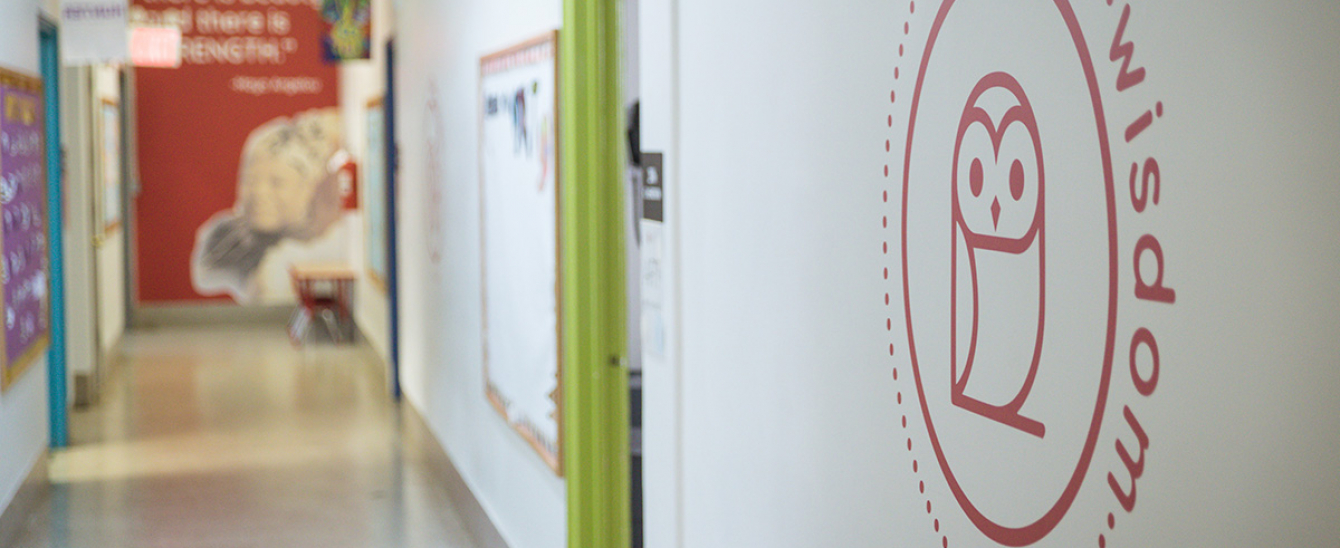
Character Formation
One of the cornerstones upon which our charter schools are built is “Lead with Character.” We believe that good character makes for a meaningful life and produces lasting happiness. As a result, the development of moral virtue in the children and adults we serve is a central part of our educational mission.
Our charter schools emphasize the cardinal virtues of classical antiquity—Courage, Wisdom, Justice, and Self-control. The term “cardinal” comes from the Latin word “cardo” that means “hinge”; the cardinal virtues are so called because they are regarded as the basic virtues required for a virtuous life. The cardinal virtues are infused throughout each school’s curricula, referenced regularly in classroom instruction, intentionally modeled by faculty and staff, and showcased in tangible and deliberate ways.
Our Four Cardinal Virtues

Courage
Doing what is right in the face of fear (K-1) finding the strength to persevere (2-3), and having a willingness to venture when unsure (4+).

Wisdom
Making thoughtful choices (K-1) demonstrated in word and action (2-3) with knowledge of the things that matter (4+).

Justice
Fairness (K-1). Giving to all what is owed to all (2-3), consistent with one’s dignity (4+).

Self Control
Actively monitors voice and body (K-1) by considering their impact (2-3) and exercising power over impulses (4+).
We hold the following beliefs about character formation:
- Character formation must be intentional and cannot be a separate, stand-alone program; rather, formation must be holistic, infusing all parts of a school’s culture, routines, curricula, and ethos.
- Children learn how to be and who to be from personal experience, the examples of influential adults, and through direct instruction. These three ways of learning are essential to our approach.
- An understanding of dignity, a context greater than oneself, and the belief that self-giving is key to one’s happiness must be nurtured in children.
- Because growing in good character is a good in and of itself, we seek to develop moral virtue in children, as opposed to “performance character.” Likewise, we seek to promote the formation of internally-driven character rather than externally-motivated behavior.
- Forming virtue in adults who work with children is paramount to effective character formation in children. While our approach involves children integrally, it begins with the formation of adults. Because one cannot give what one does not possess, we challenge all of our educators (teachers, staff, parents) to reflect on their own character, and how they can grow in virtue.
- When we talk about character, we intentionally use the term “virtue” and not “value.” Virtue is moral excellence supported by developed habits of mind and behavior. Virtuous citizens are a cornerstone of just societies.
- We believe in good and bad and right and wrong; that there is objective truth in the realm of morality; and that an open mind is not an end to itself but a means to the end of finding truth.
- Social emotional learning (SEL) compliments our holistic approach to character formation. While recognizing social emotional learning and character education are not the same, SEL provides children with important tools for demonstrating elements of good character, especially self-control.
- Use of restorative practices, particularly restorative circles and conferences, is an important tool in our approach.
Seton is committed to future growth both inside and outside of New York City and will continue to seek ways to expand opportunities for children in underserved communities to access an academically-excellent and character-building education. We are confident our model can be replicated across the country with the same high degree of success that the Brilla Schools Network has shown.